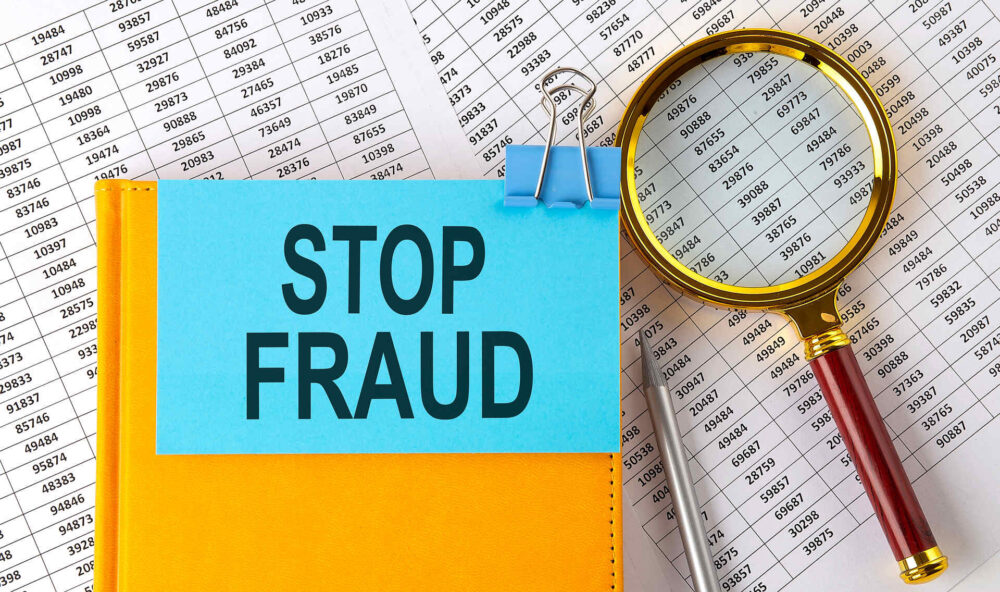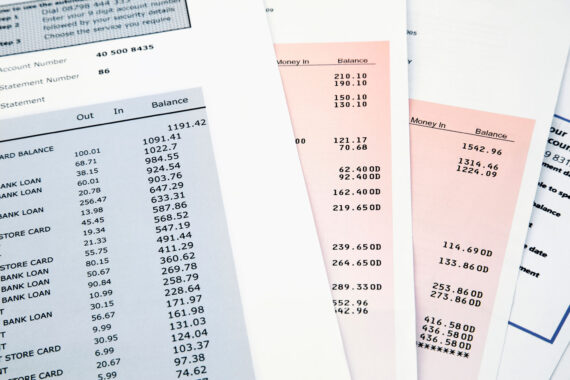Have you been thinking about setting up a merchant account for your business? You are aware that, without one, you won’t be able to accept any payment carried out with debit or credit cards. Still, you might not be exactly sure how to go about this task. Does one simply go to a bank and request one? Or is there more to this process? Here is a step-by-step guide to help you find optimal merchant services and start processing credit card payments.
How to Set Up a Merchant Account
To set up a merchant account, first research and select a credit card processing company that fits your business needs, focusing on fees and credit card processing services. Fill out an application with your business details, including financials and sales estimates. Once approved, you’ll get the required equipment (POS system) or software for payment processing. Integrate this system into your business to begin accepting card payments, ensuring you fully understand the fees and contract terms to avoid future surprises.
| Step | What to Do | Why |
|---|---|---|
| 1. Register Your Business | Register your business with the government and get any licenses, permits, and tax IDs you need. | This makes your business official and legal. |
| 2. Get an EIN | Apply for an Employer Identification Number (EIN) from the IRS. | An EIN is like a Social Security number for your business, used for taxes and banking. |
| 3. Open a Business Bank Account | Open a bank account specifically for your business. | You need a place to deposit the money from your merchant account. |
| 4. Research Merchant Account Providers | Compare different providers based on fees, processing time, customer support, security, integration with your systems, and reputation. | To find the best option that fits your business needs. |
| 5. Complete an Application | Fill out the application form with your business and personal information. | This is necessary for the provider to set up your merchant account. |
| 6. Provide Supporting Documentation | Submit documents like business registration, bank statements, and tax returns. | The provider needs to verify your business is legitimate and assess any risks. |
| 7. Wait for Approval | Wait for the provider to review your application and approve your account. | The approval process ensures your business is trustworthy. |
| 8. Set Up Payment Processing | Integrate the payment processing software with your website or point-of-sale system. | This allows you to accept payments from your customers. |
| 9. Test the System | Test the payment system to make sure everything works correctly. | To find and fix any issues before you start using it for real transactions. |
| 10. Start Accepting Payments | Begin using the system to accept payments from your customers. | This is the final step to start receiving money for your products or services. |
What is a Merchant Account and Why Do I Need One
To put it simply, this is a bank account for your business. The main difference between this account and your personal one is that this is where your business funds are stored. And, more importantly, it allows you to accept debit and credit cards. In other words, if you would like your company to be able to process card payments, you will absolutely need a merchant account. We are all aware of the benefits of applying for this feature, but let’s list them:
- Attracting more customers. Statistics say that more than 50% of Americans prefer to pay with plastic over cash. In other words, as a cash-only enterprise, you are depriving yourself of a long list of potential customers.
- Enabling an online payment system. Being able to accept cards is also a prerequisite for introducing online payment processing solutions to your business. E-commerce business models are more and more popular.
- Security. If you are working with a reliable merchant service provider, your cashless transactions will be completely secure, both for you and your clients.
- Convenience. Lastly, cashless transactions are way more convenient for buyers, as they don’t have to carry large amounts of cash around, but also for you, as they make profit tracking much easier.

Who Needs a Merchant Account?
You need a merchant account if your business takes cashless payments like credit and debit cards. This includes businesses of all sizes, from small home-based businesses to large corporations. Some types of businesses need a merchant account or access to merchant services through their payment processor in order to do business.
E-Commerce Businesses
Online stores need a bank account so they can accept payments from people who buy things on their site. This lets customers from all over the world safely use credit and debit cards to pay.
Restaurants and Bars
Businesses that serve food, like restaurants and bars, need a merchant account in order to take credit and debit card payments from customers who eat in or order takeout, or sit down to grab a few drinks. No matter whether customers do it in person, online, or through a mobile app. This makes sure that the payment process goes smoothly and quickly, which improves the customer experience.
Healthcare Providers
Doctors, dentists, and other health care professionals need a bank account in order to accept credit cards and insurance cards as payment for their services. The billing process will be easier to understand and faster for customers to pay.
Retail Stores
Stores need a merchant account in order to take credit or debit card payments from customers who buy things in their shop. This is important for giving shoppers a simple and adaptable way to pay, which can help boost sales.
Service-Based Businesses
Service-based businesses, such as consulting firms, need a merchant account to accept payments from clients who pay for services using credit or debit cards. This makes it easier to process payments quickly and helps make sure that funds are received on time.
Nonprofit Organizations
Nonprofit organizations need a merchant account to accept donations from supporters who make contributions online or in person using credit or debit cards. This makes it easy and safe to handle donations, which helps nonprofits raise money effectively.

What Kind of Card Payments Do You Want to Introduce
Before we move on to explain how to choose the best credit card processing company for yourself, you must decide precisely what kind of credit card processing services you are looking for. In other words, different providers will include different solutions in their offer, so make sure you know what to ask for. For example, would you like to simply add the option for paying with plastic at the register (i.e. by swiping the card)? Or maybe you want to focus more on an online payment solution or payments over the phone? Would you also like to have the option of recurring billing for subscription-based services?
You should also think about the type of cards you would like to accept. The longer the list of card associations, the better, especially if you often deal with tourists with foreign-issued cards. You could include the usual ones such as Visa, Mastercard, American Express, but also Discover, China UnionPay, and JCB. Lastly, consider the average monthly volume of transactions you would expect to have. In other words, will you still accept cash payments or checks, or are you planning on completely switching to cards?
Looking for the Right Provider of Merchant Services
Now that you know what exactly you are looking for, it is time to find the right service provider for your company. Of course, you can go directly to your bank and request to open an account. All you need to do is make sure that the bank has an agreement with the associations whose cards you’d like to be able to process. However, an alternative route would be to hire an authorized agent – an independent sales organization (ISO) or a member service provider (MSP). These companies act as mediators between clients and banks and make the whole process a little easier.
However, there is quite a long list of service providers out there, so it is important to figure out some sort of criteria for choosing the right one. Here are some things you should pay attention to.
Fees for Credit Card Payments
Once you start accepting credit cards, every transaction will carry with it a certain processing fee you’ll need to pay. If you choose a provider with higher fees, they can truly stack up over time and cost you a lot. However, keep in mind that there are two main kinds of transaction processing fees:
- Flat fee. The amount of this fee is always the same, regardless of the payment. In other words, whether you just sold a $2 coffee or a $400 couch, you will be charged the same amount.
- Percentage fee. This is the more common option. Every transaction will carry with itself a fee that is a certain percentage of the overall amount. Keep in mind that many providers that offer the percentage fee have transaction tiers that decide what percentage bracket a particular transaction falls in.
Regardless of which option you decide to go with, make sure you read the fine print carefully.
Other Charges for Your Business
A transaction fee will most likely not be the only fee you’ll have to face. Different providers will charge you for different things, but some of the most common additional charges include:
- Monthly minimum fee. If the overall amount of your transactions does not exceed a specific number, you will be charged a monthly minimum fee.
- Setup fee. This is a one-time fee for setting up the service.
- Cancellation fee. If you decide to cancel your agreement with the service provider before its expiration date, you will most likely be charged a fee.
- Statement fees. Receiving your merchant statement might come with a fee as well.
- Other fees. As we have already mentioned, different providers charge for different things. So make sure you ask about all the things you will have to pay for before signing your agreement.
Evaluate Their Customer Support
The provider you choose will have a very important role in handling your money. This is why you need to establish a trusting relationship with their customer support. The best way to evaluate your potential provider’s customer service department is to simply give them a call and request information about their solutions. You may even want to ask questions you already know the answer to in order to check how comprehensive and accurate the information they give you is.
The Comprehensiveness of Merchant Services
As we have previously said, different providers will include different types of services in their offer. Check to see if these solutions match your needs. Are things such as recurring billing, a website payment solution, virtual terminals, or email invoicing included in the package? You should also make sure they can provide you with a payment gateway and any hardware you’ll need.
Other Business Owners’ Experiences
If a provider looks good on paper, it is time to see how they perform in real life. The best way to do so is by learning about the experiences of their previous and current clients. You can do that by checking their reviews and testimonials online, or you can ask them in person. In fact, some providers will even send you references and contacts upon request.

Applying for Services
Now that you’ve chosen your merchant services for credit card processing, it is time to apply to receive business services. We should warn you – this is not going to be an easy process. Just like you need to evaluate your provider first, they will want to evaluate you and your company as well. They need to make sure there will be no issues when providing you with services. Although the process slightly varies from one provider to another, here are some general steps you should take.
Fill out the Application Form Before Opening the Account
Once you apply to receive these services, you will be asked to fill out a comprehensive and detailed form. Carefully go through all questions and provide honest and precise answers. If there are any points you are not sure about, make sure you ask instead of taking guesses. It is of utmost importance that this form is filled properly.
Prepare Financial Statements
Your future provider will likely request a long list of financial statements and other documents. This may include your processing history (along with the volume of transactions, charge-backs, and refunds) in the past six months, your credit score, and maybe even your personal information. In other words, be ready to deal with quite a bit of paperwork in the process of applying.
Cover Letter
Depending on your chosen provider, you might be asked to submit a cover letter. This letter should clarify any problematic points in your application or anything else you think might look suspicious. For example, if you run a high-risk company, you should explain your strategy of minimizing the risk. If your credit score isn’t stellar, you should clarify why it is so and how you managed to improve your situation.
In short, the whole point of writing a cover letter is to prove to the service provider that your company is safe to work with, and that you’re not a high-risk business. In other words, if you’ve always done things in a legitimate and transparent manner, you shouldn’t have anything to worry about. This means you won’t have to apply for a high-risk merchant account.

The Last Phase – Setting Up a Merchant Account for Your Business
Once you have submitted your application and logged in, you will be provided with all the hardware and software needed to set up and begin credit card payment processing. You will receive detailed instructions from your provider on how to log into your software. Follow them carefully and you shouldn’t run into any problems. Congratulations, you can now process credit cards!
How to Avoid Frauds
As with any service-based industry, there are companies out there that pretend to offer reliable services when, in fact, they are only after your money. Making the mistake of signing a contract with such a company can end up costing you a lot of money and nerves. Luckily, there are ways to recognize and avoid fraudulent businesses. Here are some telltale signs of fraud.
Extremely Low Fees
Is the provider promising a transaction fee that is too good to be true? Then it probably is. For example, they may just be providing you with best-case-scenario calculations, or they could be hiding additional charges that stack up over time. Of course, they could just be lying, instead of simply manipulating the statistics. The safest option is to go for a company whose rates are within the average range with comprehensive services.
Iffy Client Support
A client support department that doesn’t seem to be doing its job right is a red flag you shouldn’t ignore. Do their agents seem to give you partial answers and leave important information out? Or maybe they sound like they don’t really know what they’re talking about and are simply reciting a text they learned by heart. In either case, manipulating numbers and leaving out information is a sure sign that you are not dealing with a reliable service provider. Avoid them at all costs.
Vague Numbers
So maybe the rates and costs seem reasonable and the client support is easy to work with. But do the numbers add up? Go over the terms and conditions provided by the company and pay close attention to the numbers they mention. Are there fixed charges and percentages, or do they only mention brackets with a very wide range? Write it all down on a piece of paper and don’t be afraid to do some math. Figure out how much money in total you would be paying this company. It takes some work, but it could save you a lot of time and money in the long run.

Embrace Cashless Efficiency with Merchant Chimp
Setting up a merchant account is an essential step towards financial growth, operational efficiency and success for your business, allowing you to embrace the vast opportunities of credit card payments. From attracting more customers who prefer cashless transactions to enhancing the security and convenience of your sales processes, the benefits are substantial. Deciding on the right payment solutions, whether for online shopping or in-store, or via phone, tailoring your services to include a variety of card options and planning for your transaction volume are key preliminary steps. As you navigate through the selection of the right merchant services provider, considering fees, different solutions, customer support, and the comprehensiveness of services becomes crucial.
For a trustworthy and transparent partnership in this journey, consider Merchant Chimp. Our comprehensive services, dedicated support, discount program, and competitive pricing are designed to cater to your unique business needs. Connect with Merchant Chimp today, and let us help you unlock the full potential of cashless transactions.






